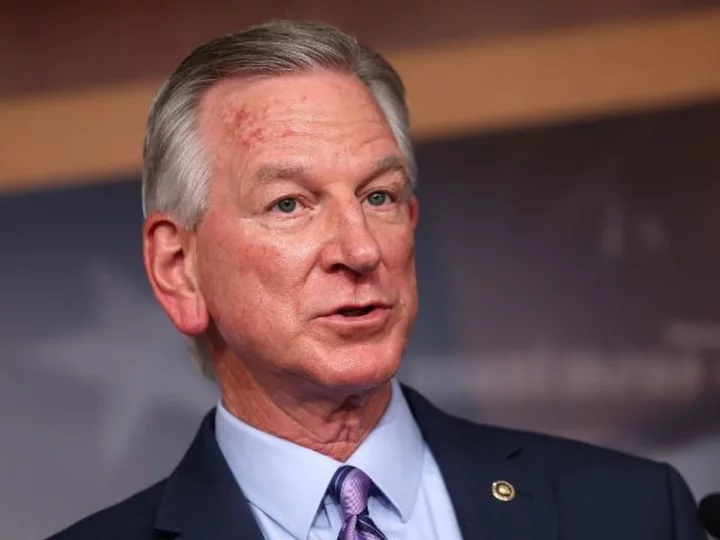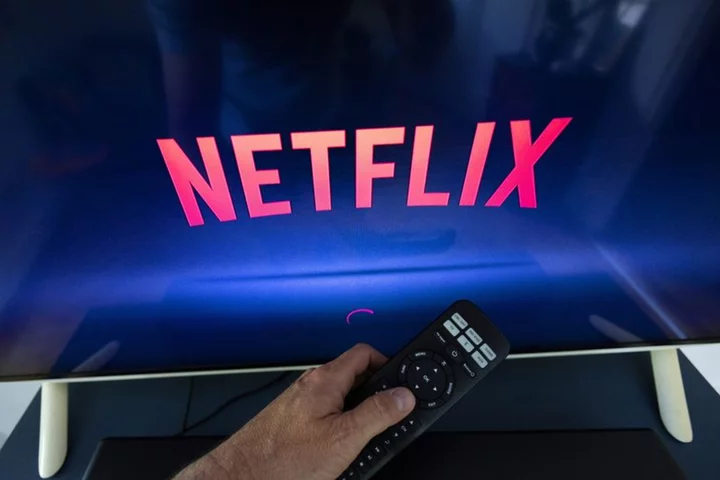Republican Sen. Tommy Tuberville of Alabama expanded on his comments about White nationalists in the military, insisting "racism is totally out of the question."
"I'm totally against racism. And if Democrats want to say that White nationalists are racist, I'm totally against that, too," he said on Tuesday. When pressed if he believes White nationalists are racist, during a tense back and forth with reporters on the definition, Tuberville replied, "Yes, if that's what a racist is, yes."
Tuberville on Monday doubled down on his previous comments on White nationalism and said it was an "opinion" that White nationalists are racist.
During an interview on CNN's "The Source with Kaitlan Collins," Tuberville repeatedly defended his previous comments. When Collins stated the definition of a White nationalist is someone who believes that the White race is superior to other races, Tuberville said, "Well, that's some people's opinion."
When asked what his opinion was, Tuberville said, "My opinion of a White nationalist, if someone wants to call them White nationalist, to me is an American."
Speaking on an individual level, Tuberville added, "If people think a White nationalist is a racist, I agree with that."
Tuberville previously faced backlash regarding comments made originally in an interview with a local Alabama radio station when he was asked if he believes White nationalists should be allowed in the military and responded, "I call them Americans."
Senate Majority Leader Chuck Schumer -- who previously called on Tuberville to denounce White nationalism as "un-American" and stop his hold on military nominations -- slammed the Alabama Republican in floor remarks Tuesday over his comments on White nationalism.
"Last night, given another chance to clear the air, he suggested that, no, White nationalists aren't inherently racist. That yes, White nationalism is American. And that the definition of White nationalism is a matter of opinion," Schumer said. "It's hard to believe that the senator from Alabama has to be corrected again. The senator from Alabama is wrong, wrong, wrong. The definition of White nationalism is not a matter of opinion."
Sen. John Thune, the Republican whip, told reporters there is no place for White nationalists in the Republican party or the military, refuting Tuberville's comments and saying, "I am not sure exactly what he was trying to say there."
"I mean I would just say that there is no place for White nationalism in our party, and I think that is kind of full stop," Thune said.
When pressed on if there was room for White nationalists in the military, Thune said, "There's no place for it there either."
Tuberville has been holding military nominations in the Senate as part of a protest of Pentagon reproductive health policies announced earlier this year that provide additional support to service members and dependents who must travel out of state to receive an abortion. Thune on Tuesday also suggested he has serious concerns about the long-term effects of Tuberville's hold on votes for military promotions despite the fact he agrees that the Pentagon policy on abortion is misguided.
"I think the longer this drags on, the more problematic it becomes for the military to function and operate in the way that I think the American people expect them to operate," Thune said.
Tuberville told CNN Monday night that when lawmakers are in the minority party in the Senate, "the only power we have is to put a hold on something."
Asked by Collins whether he knows better than seven former defense secretaries who penned a letter in May arguing the hold was "harming military readiness and risks damaging US national security," Tuberville said: "They were nominated, they weren't elected. I was elected to represent the people of Alabama in this country."
"I'm a senator," Tuberville added, "I can hold any confirmation I want until we get some kind of confirmation of why you're doing this" from the White House and Pentagon.
Tuberville had told CNN's Manu Raju earlier Monday that he would not back off of his hold, saying he doesn't buy concerns about the impact on military readiness "whatsoever" and arguing "this is not a risk."This story has been updated with additional developments.









